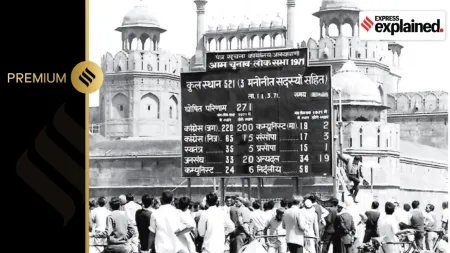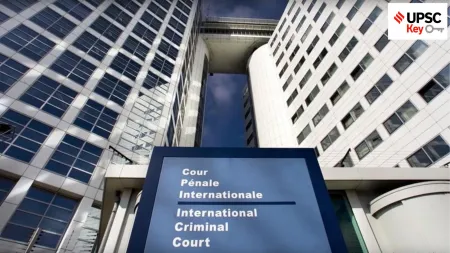- India
- International
Congress says new forest rules dilute tribal rights, Centre says aimed at streamlining
Congress general secretary Jairam Ramesh said the rules issued recently allow forest rights to be settled after the final approval for forest clearances has been granted by the Centre.
 Rahul Gandhi. (PTI Photo)
Rahul Gandhi. (PTI Photo)The Congress Sunday accused the Union government of diluting the rights of tribal communities through the new forest conservation rules, drawing a rebuttal from the Centre which said these rules simply aim to “streamline” project clearances.
The new Forest Conservation Rules — notified by the Ministry on June 28 — do not mention the earlier requirement of attaining a gram sabha NOC before diverting forest land for a project. They also allow forest rights to be settled after the final approval for forest clearances has been granted by the Centre, a point flagged by Congress general secretary Jairam Ramesh in a statement on Twitter on Monday.
In response, Union Environment and Forests Minister Bhupender Yadav posted on Twitter that the 2022 Rules are not inconsistent with the Forest (Conservation) Act, whose compliance can also be ensured “simultaneously”.
In 2009, Ramesh, who was then the Union environment minister, had introduced a rule that no clearance for diversion of forests would be considered unless the rights under the FRA, 2006 (a still-ongoing process) were settled. This included acquiring a gram sabha NOC. This was later included as a part of the Forest Conservation Rules in 2015 under the Act.
He said in his statement: “Now, in a new set of Rules issued very recently, the Modi Government has allowed for forest rights to be settled after final approval for forest clearances has been granted by the Central Government. Obviously, this has been done in the name of ‘ease of doing business’ for a chosen few. But it will end the ‘ease of living’ for the vast many. Once forest clearance is granted, everything else becomes a mere formality and almost inevitably, no claims will be recognised and settled.”

The settling of forest rights now needs to be carried out by the state government instead of the Centre, as was the case earlier.
“The state governments will be under even greater pressure from the Centre to accelerate the process of diversion of forest land,” Ramesh said in the statement.
But Yadav tweeted: “Forest (Conservation) Rules, 2022, are reformative with an objective to streamline the process of approvals under the Act, and enable the parallel processing under other Acts and Rules including FRA, 2006. The allegation is an ill-informed attempt to show that the Rules don’t care about the provisions of other laws. The government under Shri Narendra Modiji remains committed to protecting the rights of Adivasis”
“The Forest (Conservation) Rules, 2022 have been promulgated solely to implement the provisions of the Forest (Conservation) Act, 1980. No rule or provisions of any Act are being diluted. The process has been streamlined for reducing the timelines for arrival at the final Decision… Processes and provisions envisaged in the Forest (Conservation) Rules, 2022 are not inconsistent with the other statutory laws including FRA compliance of which can also be ensured simultaneously by their respective nodal implementing agencies to reduce the time lag and cost involved,” said a note tweeted by Yadav.
The Forest Conservation Act of 1980, brought the diversion of forest land for non-forestry purposes under the purview of the central government — prior to this the states were solely in charge of clearing projects and diverting forest land. The Forest Conservation Act, laid down the process by which forest diversion could be carried out for projects such as mines or dams.
“But the Forest Conservation Act, and the Forest Advisory Committee, which would decide on the cases of forest diversion, would earlier only look at issues of forest health, protection of wildlife species, major harm to biodiversity, the land required for compensatory afforestation in lieu of the forest diversion etc. It was only when the Forest Rights Act, 2006 was enacted that the government mandated that the rights of forest dwelling communities need to be recognised, and that they needed to be consulted before the project was sanctioned. This included permission of the gram panchayats of these communities, before a project could be sanctioned. But the new Rules talk of settling rights of the forest dwellers before a project sanction. First, this comes at the tail end of permissions, after the Centre has already sanctioned a project. And secondly the gram sabha permission has not been included,” said Prof Sharachchandra Lele, a distinguished fellow at the Ashoka Trust for Research in Ecology and the Environment.
May 01: Latest News
- 01
- 02
- 03
- 04
- 05







































